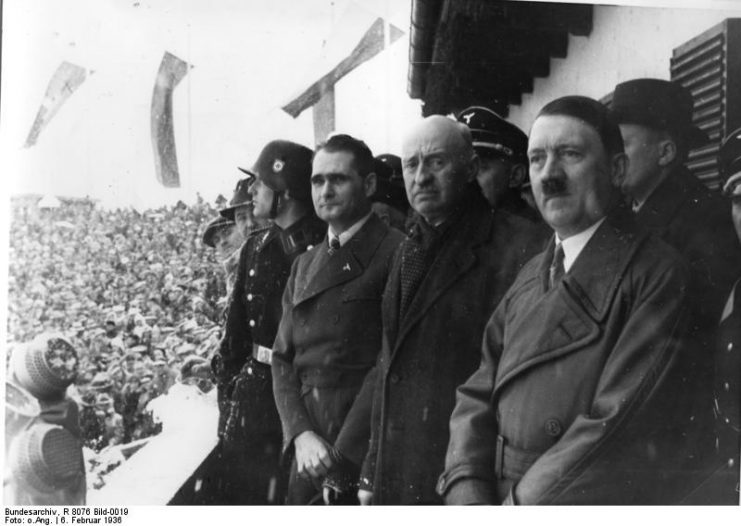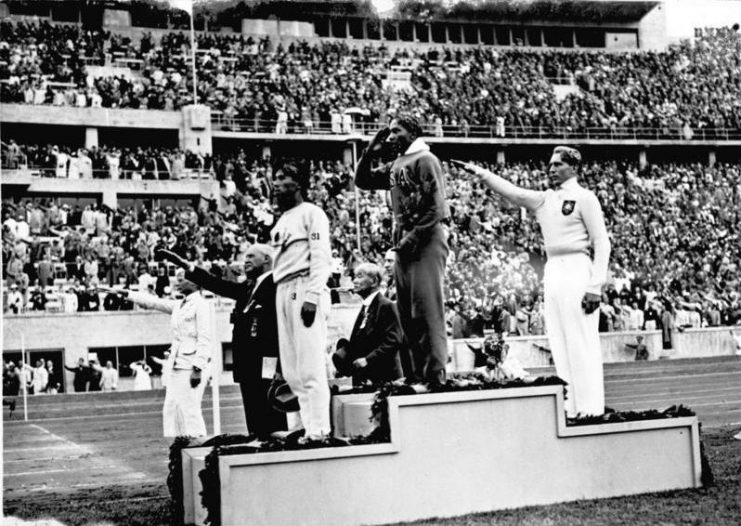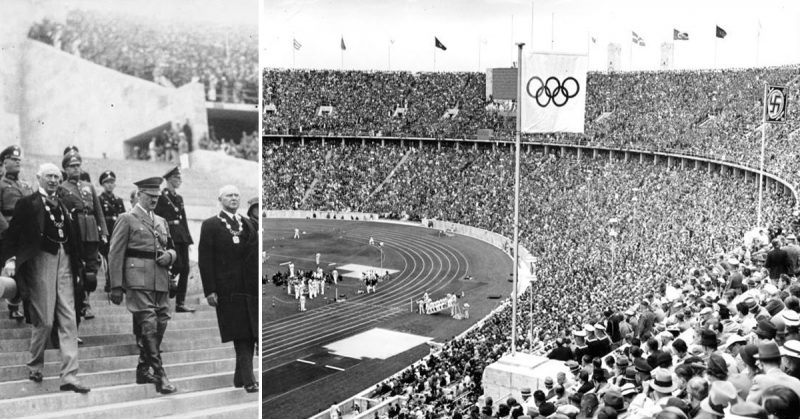Well-known British diplomat Robert Vansittart had been protesting against and sending out warning messages about the rise of Nazism for many years, so it came as a shock when he and his wife decided to go to the 1936 Berlin Olympics for their holidays. The political figure came back impressed by German state power, describing them as a strong, powerful people and make us look inferior. Vansittart even had a meeting with Hitler and his entourage at one point, pointing out Goebbels as a lumbering yet elegant man, and to whom his wife and he had quickly taken a liking to.
Vansittart even thought of going back on his anti-Nazi stance on some points, thinking he may have misjudged them, but a loose comment over dinner by Ambassador Von Ribbentrop regarding the likelihood of war between the two countries put him straight. The prospect of Germany and England at war, plus the aftermath of the war itself, was enough for ‘Van’ to oppose Nazism completely and consistently.

The famed historian Oliver Hilmes revealed a bunch of standout vignettes in his award-winning book, ‘Berlin 1936: Sixteen Days in August’. Hilmes’ deceivingly juvenile and comedic manner matches the mood of the games to a tee. Over that period, the Nazis and their capital city impressed the world, so much so that they were full of awe and excitement.
In fact, Berlin, as the host of the Olympic Games, was in its last true glory days, or that’s what many thought in 1936. But the city had been slowly rebuilding its reputation as a haven of industrial brilliance and stylish wonder. And the club life which had consumed Christopher Isherwood during the Weimar years hadn’t been completely eliminated yet.
Almost a year after the anti-Semitic laws were put into place, the remaining Jews were still somehow coping with the conditions. This flabbergasted some of the native residents, but it made sense in a way, as the ones that stayed were wealthy and important within the area, like Leon Henri Dajou, who owned a stylish and popular club within the city. It was clear that those that wanted to stay needed to have enough power, influence, and money so that the Nazi regime couldn’t mess with them.
The standout memory of the Berlin Games was the story of Hitler refusing to shake the hand of black African American athlete, Jesse Owens, who had just won gold. The story is not entirely factual, as a self-centered IOC member had told him that it wasn’t his job to congratulate the athletes. Hitler complied with the IOC’s advice.

During those two weeks, the Nazis were in a productive and somewhat friendly state. The newest technology allowed the events to be broadcast live on the radio to the entire world, and with a very minimal delay. The world was certainly impressed with the Nazis display and broadcast, and critics praised their staging specifically. But the Polish ambassador was wary of people with such a talent for organization and preparation, going as far to imply that the Germans could have their whole nation on hand for combat in a moment’s notice.
Due to the event’s relative successful execution, the Nazi regime’s international popularity increased somewhat and was probably the high point for Hitler and the Third Reich in terms of global recognition.
Goebbels had a private party just before the games ended for entertainment purposes, it finished at midnight with a big bang in the form of celebration fireworks. The last cracker set off had been a message of sorts, with it covering the sky with a deep red, subtly implying deceit and seduction. The whole world had just been fooled.
